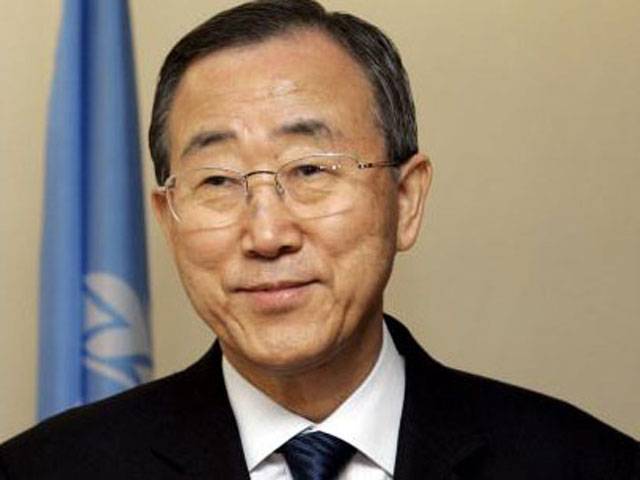UNITED NATIONS: UN Secretary-General Ban Ki-moon has called for addressing climate change, warning that the phenomenon of long-term shift in weather patterns could have link with terrorism. “When we do not address climate change properly it may also affect many people who are frustrated and who are impacted and there is some possibility that these young people who [are] jobless and frustrated may join these foreign terrorist fighters,” the UN chief, who is in Valletta, Malta, for the Commonwealth summit said in an interview with the Canadian Broadcasting Corporation (CBC).
At an earlier press conference, the secretary general called for action on climate change as Commonwealth leaders met to discuss wide-ranging issues, including climate change and terrorism. “We must take action. We have spoken for a long time - at least 20 years, longer than 20 years – and the science has made it plainly clear,” he told reporters on the margins of the Commonwealth summit in Valletta, on the eve of the two-week-long UN climate change conference, widely known as COP21, opening in Paris on Monday.
In the interview with CBC, Ban said the attacks in Paris can’t overshadow efforts to reach a climate change agreement at next week’s summit. “There is a concern whether it may overshadow the climate change agreement and I think we have to move on this climate change agreement,” he added. French President Francois Hollande was meeting with environmental groups Saturday, pushing for an ambitious global deal to reduce man-made emissions blamed for global warming, CBC said. The talks in the Elysee Palace come as world leaders prepare to converge on Paris to launch two weeks of high-stakes talks. Leaders and climate negotiators from 196 countries meeting at the UN talks Nov 30-Dec 11 will try to hash out the broadest, most lasting deal to date to slow global warming.
Of the French president, Ban Ki-moon said, “I highly commend the leadership of President Hollande, who has decided to carry on.” The secretary general said he thinks Canada is heading in the right direction and he thanked Prime Minister Justin Trudeau for his contribution to the international fund to help developing countries deal with the effects of climate change. On Friday, Canada announced it will contribute $2.65 billion to the fund over the next five years. Saturday’s meeting in Paris hosted by Hollande and the climate talks opening on Monday are taking place under extra-high security after extremists killed 130 people Nov 13 in one of the deadliest attacks in France in decades. The last global climate treaty, the 1997 Kyoto Protocol, required only rich countries to reduce emissions and the US, the world’s biggest emitter, didn’t take part. The talks are taking place with France in a state of emergency and thousands of troops and police fanned out to ensure security after the Paris attacks.
At his press conference, the UN chief also said, “Now I hope this will [also] be the last place to talk about this and I hope we have a good and ambitious agreement in Paris” referring to the years of effort to rein in greenhouse gas emissions that threaten to radically impact the world as we know it, from rising sea levels overwhelming low-lying island states to devastating droughts and floods. Five years ago at a climate change summit in Durban, South Africa, member states agreed in their declaration: let us agree on a universal, legally binding, ambitious climate change agreement by 2015, Ban stressed. “I think that [now] all the stars seem to be aligning. There is a strong commitment, not only from the governments but from the business communities and civil society. “And people on the ground, urge the leaders of today to make this world better and environmentally sustainable so that our succeeding generations can live in peace and harmony and prosperity, in a safer way,” he added. “We are going to make it happen and the time for taking action is now. We cannot again delay or postpone it until tomorrow.”






